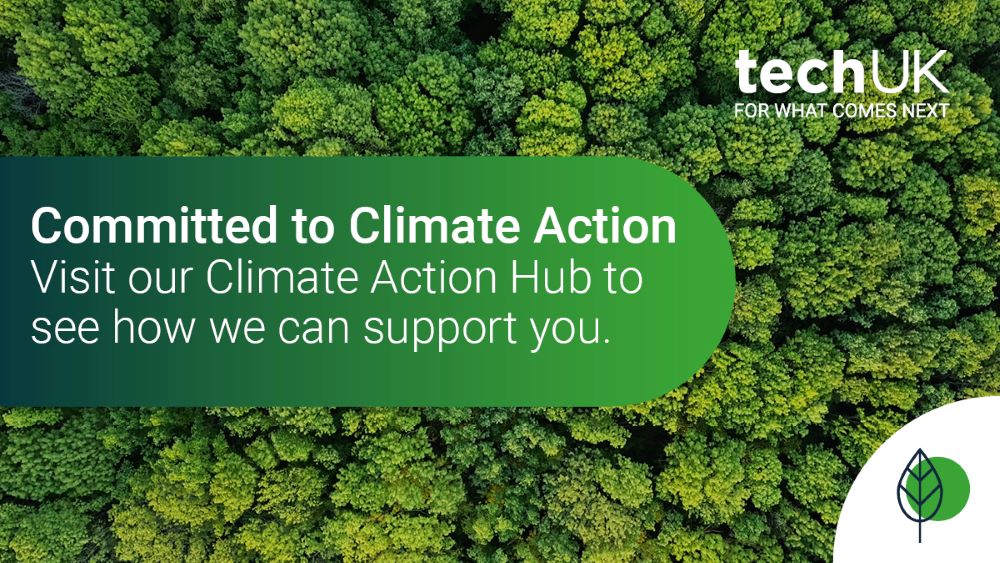Empowered employees - the critical stakeholders in truly delivering on sustainability (Guest blog by Ideavate)
With business-related carbon emissions accounting for one fifth of the UK’s overall carbon footprint, the private sector is a crucial component in the UK’s transition to a zero-carbon society (BEIS). Progress in the use of renewable energy has helped reduce business-related emissions by 40% compared with 1990, but momentum has recently stalled. Business-related carbon emissions in 2021 were slightly higher than 2019, pre-pandemic levels, at 65.1 million tonnes of carbon dioxide.
Beneath these challenging headline figures, there is a clear and growing momentum from businesses demonstrating a purpose beyond profit; with increased adoption of science-based emission reduction targets (SBTi) and voluntary participation in initiatives such as B-Corp, Race to Net Zero and The SME Climate Hub.
Larger organisations are especially optimistic in their approach, partly as a result of the introduction of ESG reporting obligations. Accenture research showed that 68% of large UK businesses believe they have a “robust” sustainability plan. However, this belief doesn’t accurately reflect the reality of those who know best: company employees.
Accenture’s research goes on to show that in contrast to the management perspective of company sustainability, employees are largely unconvinced, with only 21% believing company policies going beyond the superficial . What Accenture terms the ‘consensus gap’ illustrates that company initiatives must go beyond top-down policy documents, press releases about offsetting and regulatory box-ticking exercises, if they are to motivate and inspire employees.
A different but equally challenging problem pervades SME’s, with a relative lack of resources (time, money, personnel), corresponding to a lack of near-term focus on company environmental and social impact. Only 3% of SME’s (companies with up to 49 employees), have set carbon reduction targets within the last five years, based on research conducted by The British Business Bank in 2022 .
Whether working in large organisations or small, a shift is occurring whereby people are increasingly making employment decisions based on whether company values align with their own, and whether their company is taking action which leads to them feeling “net better off”. Just as attracting and retaining staff is becoming intrinsically linked to business purpose, the same applies to other stakeholder relationships.
Suppliers, customers and investors are becoming more discerning and demanding about the environmental credentials of their partners. 74% of consumers now see ethical corporate values as an important factor when choosing a brand to buy from (Feefo). According to Brother UK’s Sustainability Co-ordinator, Gemma Crozier, sustainability scoring now accounts for up to 40% of business tender scoring .
In addition to changing expectations of individuals and the growing business case for a culture of environmental sustainability, there is the operational challenge of getting employee buy-in. Irrespective of the sector of business or the company size, employee engagement is a fundamental ingredient for long term success.
Paul Polman, former CEO of Unilever and sustainability pioneer, suggests creating a culture of sustainability comes from the whole organisation being involved: “The key to creating a vibrant and sustainable company is to find ways to get all employees—from top executives to assembly line workers, —personally engaged in day-to-day corporate sustainability efforts”
This personal engagement requires education and transparent, internal communication channels. It arrives at a shared consensus of the company’s sustainability initiatives and obligations, empowering individuals to identify opportunities and deliver them on behalf of the business.
Accountancy firm Deloitte has had success developing a workforce of sustainability advocates; by September 2022 it had provided climate training to over 300,000 of its staff. This is helping individuals to grow their careers and enabling them to “serve as trusted advisors to their clients as they transform their organisations”, according to CEO Punit Renjen.
Deloitte is just one example of many organisations realising the power of mobilising employees to tackle an issue which will increasingly dominate the business landscape. UN-recognised organisation The Carbon Literacy Project has seen a 100% growth in Carbon Literacy accredited training across 2022, with employees from almost 4,000 organisations now certified as Carbon Literate and undertaking significant carbon reduction activities at home and at work.
With climate-related risks occupying six of the top ten biggest global issues within ten years, according to The World Economic Forum’s 2023 Global Risk Report , it’s becoming vividly clear that a whole-organisation approach to sustainability is both a necessity and an opportunity for successful business.
David Sheridan is Co-Founder and CEO of Ideavate and Climate Advcoate for work2050.
work2050 runs an accredited Carbon Literacy training course. It provides a unique, eight-hour programme specifically designed for employees in the technology/ ICT sector. Discounts apply for techUK members.
techUK – Committed to Climate Action
By 2030, digital technology can cut global emissions by 15%. Cloud computing, 5G, AI and IoT have the potential to support dramatic reductions in carbon emissions in sectors such as transport, agriculture, and manufacturing. techUK is working to foster the right policy framework and leadership so we can all play our part. For more information on how techUK can support you, please visit our Climate Action Hub and click ‘contact us’.


